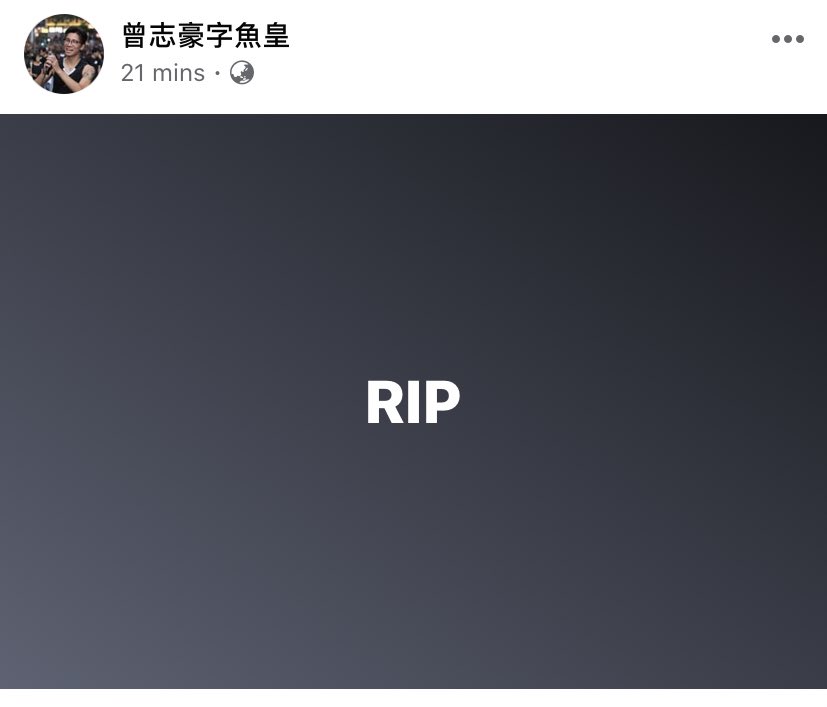Viral Alarm & The Best China
On 19 May 2020, Radio Television Hong Kong 香港電台, the city’s public broadcaster announced that the popular satirical political skit show Headliner 頭條新聞 would go into ‘temporary recess’ after having been officially reprimanded for mocking the police in an episode featuring the actor (and former policeman) Wong Hei (王喜, 1967-) broadcast on 14 February 2020.
***
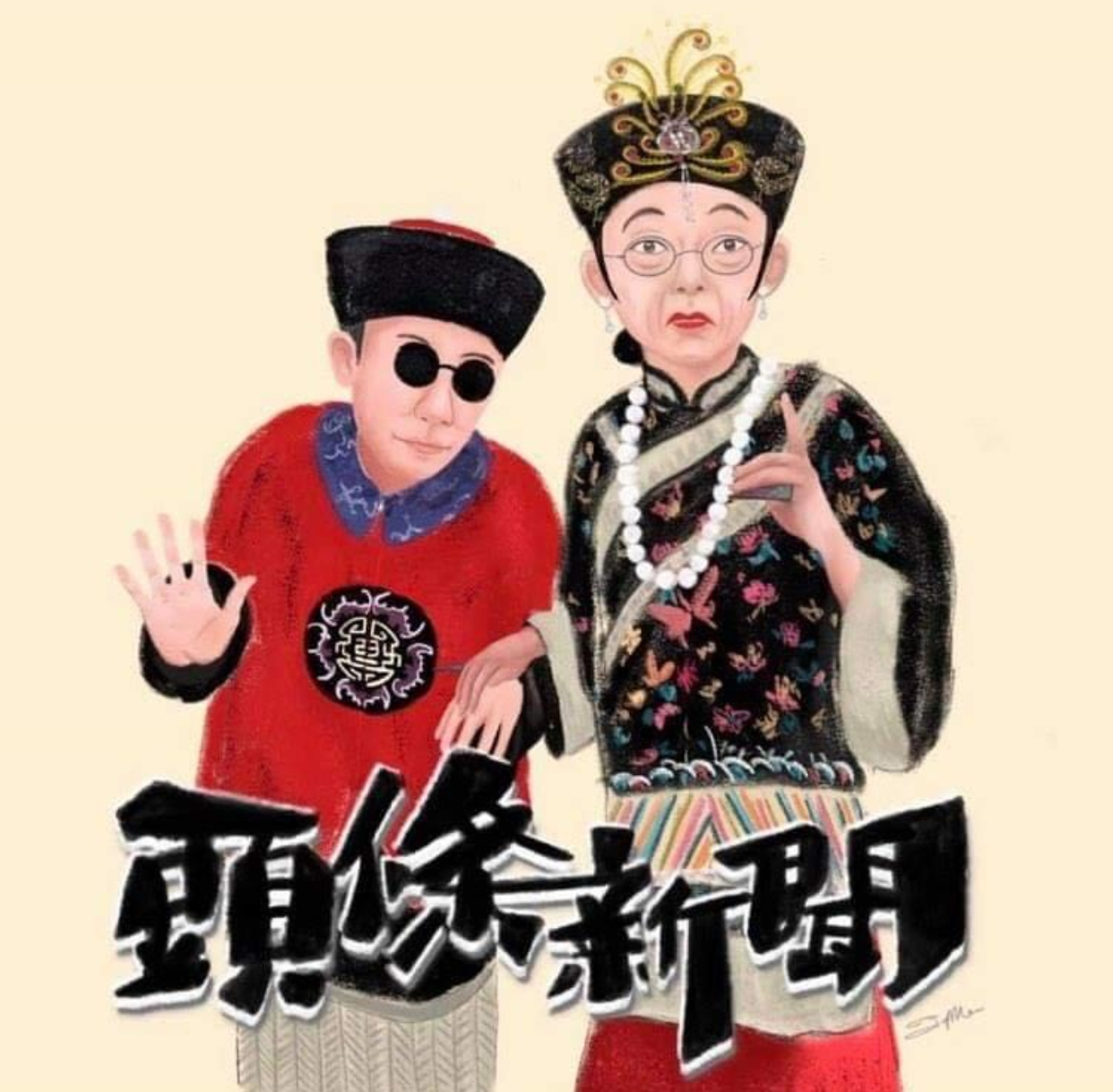
***
As we noted in July 2019, when we introduced Headliner as part of our series ‘Hong Kong Apostasy‘, this topical show has for thirty years reported on, analysed and mocked the politics of the day. Previously, the official website of RTHK had celebrated the fact that:
Headliner has been unwavering in its support for a culture of comedy, ridicule, outrage and vitriol. For over twenty years, our resolve has remained unshaken in tirelessly promoting a snarky attitude. We regard this as more important than life itself.
We believe that the bedrock of Hong Kong is Freedom of Expression.
We reaffirm our pledge to stand by the people of Hong Kong and to be a voice to conscience. This is the Core Value of Headliner.
《頭條新聞》一直堅持嬉笑怒罵,受了二十多年的考驗,對陰陽怪氣的原則沒有動搖過半寸,甚至好比生命般重要。我們深信,言論自由是香港的基石,我們承諾會繼續站在香港人一邊,講良心話,這是《頭條新聞》的核心價值。
— Radio Television Hong Kong
香港電台網站節目介紹
trans. G.R. Barmé
***
We also observed that:
In 2019, following a period in the doldrums, Headliner 頭條新聞 once more offers an important stream of snark in the life of Hong Kong. It is a show that stares into the ever widening credibility gap of Hong Kong life and lampoons mercilessly what it sees. Its existence is an ongoing victory for what in China Heritage we frequently refer to as ‘The Other China’. It is also integral to our interests in what we celebrate as The Best China, a realm where reality meets possibility and one in which Hong Kong takes the lead. (After all, in many ways, from the 1970s, Hong Kong helped Mainland China rediscover its own ‘Chineseness’, just as it has forged a path for Cantonese language, food and culture to ‘go global’ for over a century.)
As pluralism of thought, expression and social behaviour is outlawed and policed everywhere else in China’s People’s Republic, The Best China is coming under renewed and increasing pressure. As a result, outspoken cultural enterprises like Headliner are more important than ever before.
Here we celebrate Headliner by offering a skit broadcast shortly after RTHK announced that the show would go on ‘furlough’. ‘The Mandela Effect’ features the comic duo — Ho-chi 豪仔, a canny Palace Eunuch played by the writer Tsang Chi-ho (曾志豪, 1977-), and the scheming Dowager Empress 太后 played by the veteran broadcaster Ng Chi Sum (吳志森, 1958-).
The skit is followed by an essay by Lee Yee 李怡 (李秉堯), a veteran journalist and commentator whose work features in The Best China.
We are grateful to Tsang Chi-ho for his support and encouragement.
— Geremie R. Barmé
Editor, China Heritage
24 May 2020
***
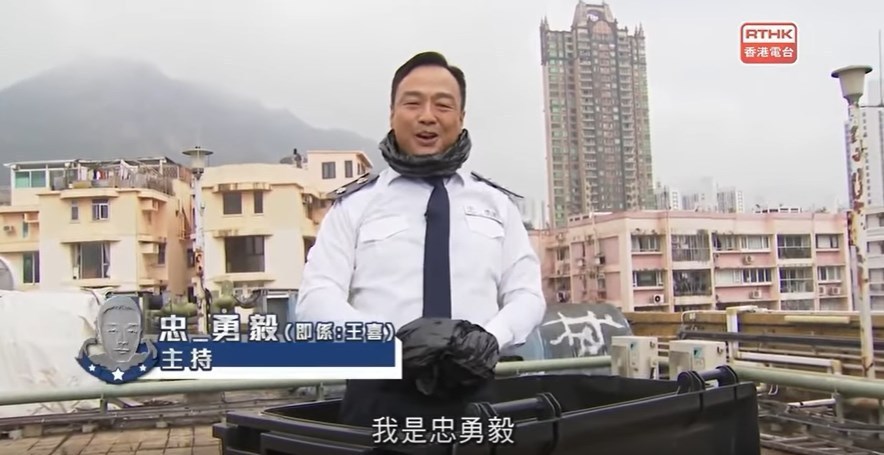
For the controversial skit, deleted from the RTVHK Headliner site, see:
- 《頭條新聞》, 第1集——無品芝麻官 (於2020年4月14日播放), YouTube, 20 April 2020, from minute 10:45 to 13:40, in Cantonese with subtitles in Standard Chinese
***
Ng Chi-sum:
On the Dowager Empress
Abdicating the Throne
22 May 2020
***
Related Material:
- Tsang Chi-ho 曾志豪 and Ng Chi Sam 吳志森 (RTHK), ‘Hong Kong Headliner — Kill Bill’, China Heritage, 14 July 2019
- Wong Wing-sum 黃泳欣, ‘Hong Kong Headliner Makes Headlines’, China Heritage, 24 July 2019
- ‘志森與志豪’, YouTube
- 王喜, ‘忠__勇毅離職演說’, YouTube, 20 May 2020
- 曾志豪, ‘小豪子留守決定’, ‘志森與志豪’, YouTube, 21 May 2020
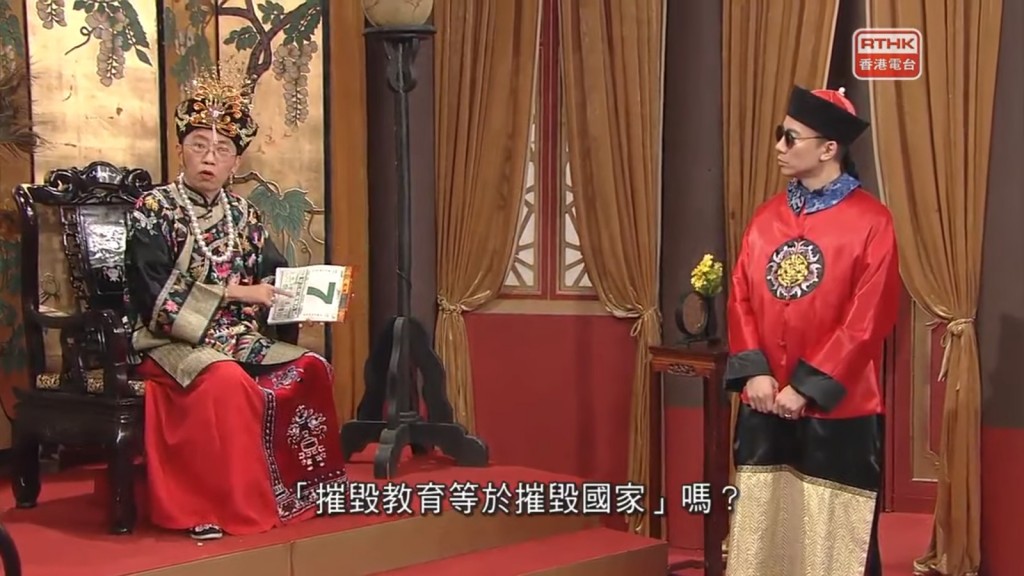
***
The Mandela Effect
曼德拉效應
Tsang Chi-ho & Ng Chi-sum
曾志豪 、吳志森
Hong Kong Headliner 2020
Episode 15, Broadcast on 22 May 2020
Translated by Geremie R. Barmé
Dowager (tearing pages from a calendar): Fantastic. Only four weeks until we’ll be on permanent holiday.
Dowager (holding the torn pages): Eunuch, where’s the garbage bin? The one that was here.
Eunuch: It’s been removed.
Dowager: What do you mean, removed? Where will Our Garbage go in the future?
Eunuch: Dowager, as Nelson Mandela said: ‘Toilet paper and underwear are all valuable.’ I think you should try and treasure them now.
[Note: The quotation here comes from From Beijing With Love 國產凌凌, a popular 1994 spoof on a James Bond movie directed by Stephen Chow, see below. The film makes numerous satirical references to Mainland life and politics, including the 4 June 1989 Beijing Massacre.]
Dowager: I’m speechless!
Eunuch: Why be downcast?
Dowager: Because Mandela never said any such thing. I’m certain that it was [the actor-director] Stephen Chow.
Eunuch: No, it wasn’t; maybe it was [that other actor] Ng Man Tat.
Dowager: Really? Mandela never really said: ‘The collapse of education is a collapse of a nation’?
[Note: On 19 May, Carrie Lam, Chief Executive of Hong Kong, erroneously attributed this line to Nelson Mandela when defending her government’s increasingly interventionist approach to education. The latest controversy surrounding high-school education — a long-term sticking point both for the Communists — focussed on a ‘biased’ history exam paper question included in the 2020 Diploma of Secondary Education exam that asked candidates whether they agreed with the view that Japan did more good than harm to China from 1900 to 1945.]
Eunuch: Dowager, it doesn’t matter who said it, what’s important is who is doing the destroying.
森(搣日曆)﹕仲有4個禮拜就放假,太好。
(拎住日曆紙)﹕個垃圾筒呢?小豪子﹗個垃圾筒呢?
豪﹕無左咯喎。
森﹕吓?無左個垃圾筒,咁哀家以後點揼垃圾啊?
豪﹕太后,曼德拉講過,一張廁紙同一條內褲,都有佢既價值。試下當佢地係寶啦。
森﹕小豪子,哀家講唔出口。
豪﹕點解咁硬頸呢?
森﹕因為呢句根本唔係曼德拉講,明明係周星馳講架嘛。
豪﹕唔係喎,可能係吳孟達講架喎。
森﹕原來曼德拉真係無講過「摧毁教育等於摧毁國家」架咩?
豪﹕太后,邊個講唔重要,邊個真係摧毁先重要嘛﹗
Dowager: Read out the questions in the latest exam paper for me, Eunuch.
Eunuch: ‘Who was sentenced to life in prison for violent resistance and endangering the state?’
Dowager: The Black Shirts! [Note: a term for Hong Kong protesters whose trademark uniform features black T-shirts, pants and footwear.]
Eunuch: Wrong. It was Nelson Mandela!
Dowager: Not him again! Law breakers must be arrested.
Eunuch: Question two: ‘Who demanded that a specialist investigation be carried out by an independent body?’
Dowager: The Black Shirts, again!
Eunuch: Wrong! It was also Nelson Mandela. He declared that a truth and reconciliation commission should be set up [in 1995].
Dowager: Damn. Mandela is the answer to every question. But, he was black, not a black shirt. Don’t you have any other answers for me? We need to balance things out.
Eunuch: I do indeed. So, let me ask you this: Who were the ones wearing yellow headgear at the time of the yellow headgear uprising?
[Note: 黃巾起義 is a play on words. The Yellow Turban Uprising occurred in the Tang dynasty and is regarded as a ‘progressive’ political movement in the official Party version of Chinese history; Hong Kong protesters wear yellow hardhats which, along with black T-shirts, symbolise resistance to the Beijing-controlled government.]
Dowager: It was definitely the Black Shirts! This time I’m sure I’ve got it right, that’s because Elder Sister gave that as the correct answer herself.
[Note: ‘Elder Sister’ is a reference to Regina Ip (Lau Suk-yee 葉劉淑儀), the first woman to be appointed the Secretary for Security and, since 2003, a strong advocate favouring national security legislation to implement Hong Kong Basic Law Article 23. The long-frustrated legislation would eventually be imposed by Beijing. Ip is said to harbour an ambition to head the Hong Kong government.]
Eunuch: Wrong yet again!
森﹕最新既考卷,讀俾哀家聽下。
豪﹕暴力抗爭、危害國家安全、被判終身監禁,係邊個?
森﹕黑衣人!
豪﹕曼德拉啊。
森﹕又係佢?犯法就係犯法,拉德好﹗
豪﹕第二題,請專家徹底查出真相,成立獨立委員會,係邊個?
森﹕黑衣人!
豪﹕錯﹗又係曼德拉﹗佢話要搞真相與和解委員會架。
森﹕喂,條條題目都曼德拉,佢係黑人,唔係黑衣人喎。有無第二樣架?要平衡各方聲音架喎。
豪﹕有,請問你,黃巾起義既黃巾,係乜野人?
森﹕黑衣人﹗呢次實答啱啦﹗因為我姐姐都係咁答﹗
豪﹕又錯﹗
Dowager: Now, you’re not going to tell me that Mandela wore a yellow turban as well? I want to watch another channel. I’ve had enough of this.
Eunuch: Dowager — according to the Mainland definition the Yellow Turbans were a righteous peasant uprising.
Dowager: Then who the heck came up with these ridiculous exam questions? We must fire them and exam questions like that have to be struck from the books.
Eunuch: Dowager, before I carry out your instructions just answer one more question. What do Nelson Mandela and the ‘One Country, Two Systems’ governance framework have in common?
Dowager: Some people might think they’ve seen ‘One Country, Two Systems’ in operation, but they were just confounded by the ‘Mandela Effect’.
[Note: The Mandela Effect refers to a psychological effect, one in which large numbers of people believe something existed or happened when, in fact, it is a fiction.]
森﹕你唔係又想話黃巾係曼德拉啊嘛?我轉台架啦﹗
豪﹕太后﹗黃巾,內地定義,係農民起義啊﹗
森﹕邊個出呢D題目架﹗同我炒佢魷魚﹗呢D歷史題目同我取消左佢﹗
豪﹕太后,不如答埋呢條先啦。曼德拉同一國兩制有咩關係?
森﹕有人話見過一國兩制,其實只係,曼德拉效應囉。
***
Source:
- 《頭條新聞》, 第15集——曼德拉, RTHK, 2020年5月22日, in Cantonese with subtitles in Standard Chinese, from minute 5:22 to 7:20; or,
- 《頭條新聞》, 第15集——曼德拉, YouTube, 2020年5月22
***
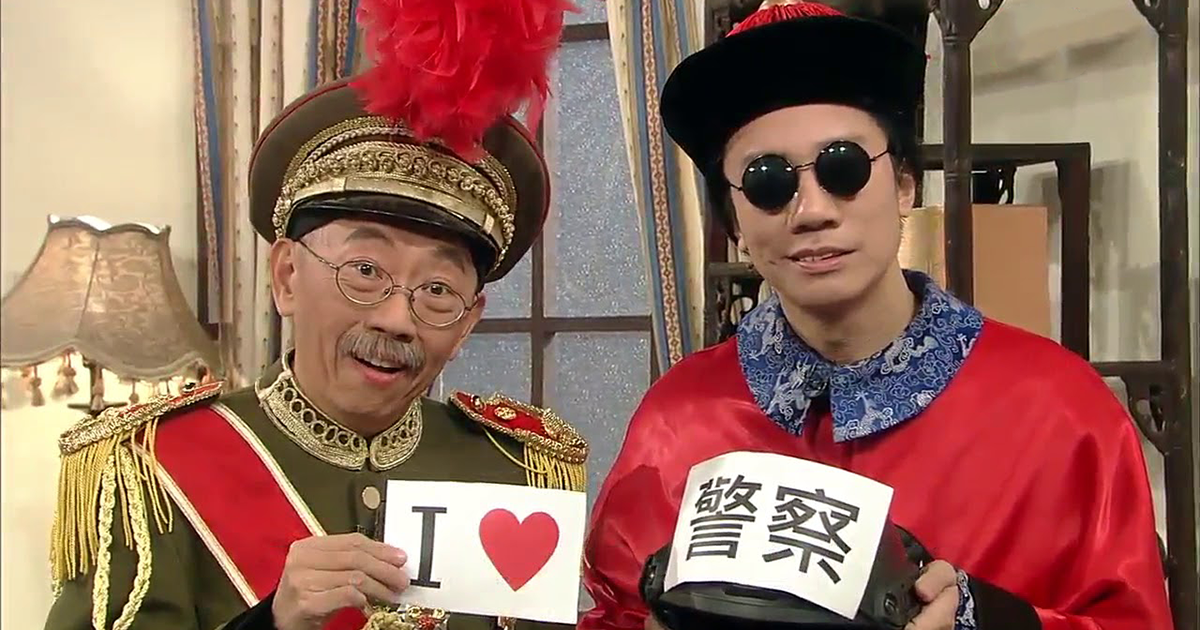
***
Other Material Related to the Cancellation of Hong Kong Headliner:
- Hong Kong Toolbar, ‘頭條新聞壽終正寢?’, 《商業電台》, YouTube, 21 May 2020 (Tsang Chi-ho and Wong Hei discuss the official rebuke of RTHK, in Cantonese)
- ‘王喜《驚訊》腰斬後首集《頭條新聞》諷警內容比例大縮水’,《蘋果日報》,22 May 2020
- 區家麟, ‘批鬥香港電台’, 《蘋果日報》,23 May 2020
If this is the best of possible worlds, what then are the others?
— Voltaire, Candide
***
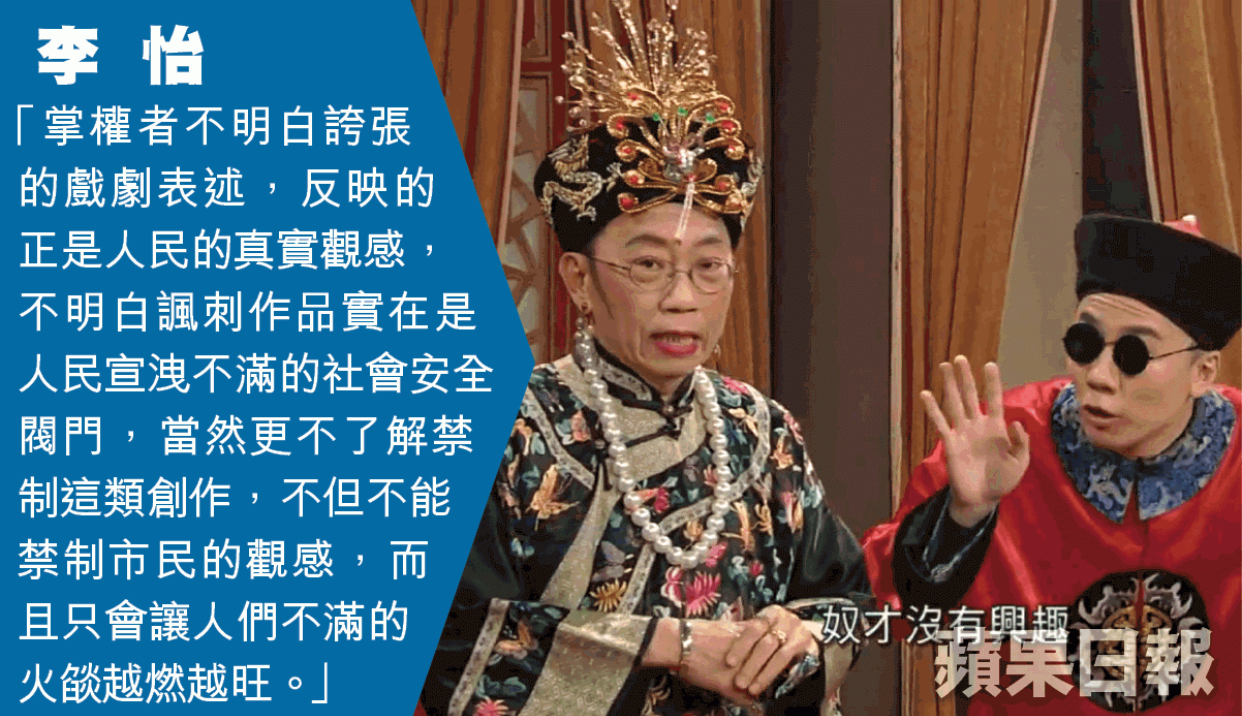
***
Forbidding Satire
封禁社會安全閥門
Lee Yee
李怡
Translated by Geremie R. Barmé
‘Tragedy shows how what is worthwhile in life is shattered, comedy shows how what is worthless is torn to pieces.’ [— trans. Yang Xianyi and Gladys Yang]
It’s nearly a century since Lu Xun offered this definition [in February 1925]. He added: ‘satire is a streamlined version of comedy.’
「悲劇將人生的有價值的東西毀滅給人看,喜劇將那無價值的撕破給人看。」這是將近100年前魯迅給悲劇和喜劇下的定義,他接着說,「譏諷又不過是喜劇的變簡的一支流。」
Tragedy is premised on what is valuable in life, while comedy is based on that which is presumed to hold no value. The sense of tragic loss and despair is generated by a sense of devastation and destruction; while the ‘worthless’, when revealed for what it is, appears to be comic. The key to tragedy and comedy is not in the final outcome, it’s a matter of being able to see things from a completely different angle.
這段話隱含的意思是:悲劇以人生「有價值」為前提,喜劇以人生「無價值」為前提。因為有價值,它的毀滅才產生悲涼感;因為「無價值」,撕破就看出它的可笑處。悲劇和喜劇關鍵不僅僅在於結局,而在於你是怎樣用兩種完全不同的眼光去看。
In real life, the funny and the heartbreaking are often, to an extent, not all that different from each other. Franz Kafka transformed the horrors of the modern world into a sense of dread and lurking terror, while Fyodor Dostoevsky treated all human dramas and tragedies as existentially absurd. Over the past year it has been very hard to find anything that could elicit a laugh as we have witnessed the devastation of all that is of true value here in Hong Kong.
在生活中,可笑的事物與可悲的事物,往往在某種程度上相似。卡夫卡將現代人的噩夢,轉化為恐怖的風俗喜劇,杜思妥也夫斯基將所有的生活悲劇歸於荒誕。但置身在這一年多的香港,親歷一個社會的「有價值」的東西不斷地毀滅,真是很難笑得出來。
And that’s why I know that the friends at Hong Kong Headliner have faced such a daunting task over the past twelve months. Although it’s no great surprise, they have just been handed a death sentence. An administration that is at the beck and call of the totalitarian power in Beijing could not possibly tolerate satire in the long run; power-holders are notoriously humourless. Lin Yutang, the man who devised ‘幽默 yoūmò’ as the Chinese equivalent for the English term ‘humour’ observed that humour comes from a place of confidence and tolerance.
[Note: Lin Yutang wrote: ‘Only when one’s personality is naturally developed and given full play can one achieve a high-mindedness and become broad-minded and tolerant toward life with a ‘‘smile out of understanding-of the-heart/mind’’.’]
Hypersensitive, recalcitrant, pusillanimous types who are obsessed with conspiracy theories have tremendous difficulty in appreciating humour. The odious Hong Kong administration that has long wanted to close Headliner down is the epitome of what Lin Yutang was talking about, for it is possessed of all of those qualities that mean it is absolutely bereft of humour.
我相信這一年來,創作和演出《頭條新聞》的朋友並不容易。而到了今天,它被判死刑,也不意外。因為在一個依附極權而存在的政治體制下,不可能容納嘲諷,掌權者不會有幽默感。將humour譯為「幽默」的林語堂說,幽默來自自信和從容,一個極度敏感、執着、小氣或陰謀論的人,是難有幽默感的。年來不斷要封殺《頭條新聞》的特衰政府掌權者,正是林語堂所說的難有幽默感的人。
Over the decades Hong Kong has never suffered from a dearth of essays and creative works satirising the follies of the day or politics. During the maelstrom of the 1960s, when the Mainland was awash in blood during the Cultural Revolution years and Hong Kong was dealing with riots stage-managed by pro-Beijing Leftists, the cartoon humour of Yim Yee King [Ah Chong 阿蟲] flourished as did ‘the absurdities’ or satirical feuilleton of Sum So [Ko Hung 高雄]. Following Sum So’s death [in 1981], Hah Kung, ‘the Master of Mirth’, took over his absurdities column [in Ming Pao daily — although he was eventually cashiered by the owner Louis Cha for pointedly mocking Deng Xiaoping]. Hong Kong Economic Journal also published the ‘Drunken Discourses’ of Eastern Hedgerow. All of these creators were exemplars of biting social commentary and political satire.
[Note: For an example of Hah Kung’s style, see ‘The Legalisation of Rape’ in ‘The Nobility of Failure’, China Heritage, 14 August 2019].
過去幾十年,香港都不乏嘲諷時弊的文章和創作。60年代在世界動盪、中國文革腥風血雨、香港左派暴動的困厄時期,有嚴以敬的漫畫、三蘇的怪論。三蘇歿後,繼有哈公怪論。《信報》有東籬的《醉酒篇》。都是嘲諷時事的搞怪佳作。
In the 1980s, the local English-language station Pearl TV broadcast the BBC satires Yes, Minister and Yes, Prime Minister. It was a sitcom about British bureaucracy that soon became something of a classic of political satire. One of the most famous lines [spoken by the character Sir Humphrey Appleby, after Otto von Bismarck] was:
‘First rule in politics: never believe anything until it’s officially denied.’
One of the themes of both series is the political truism that the best way to get the minister to agree to a proposal is for it to be: timely, simple, popular and inexpensive. Four other words are sure to kill off any policy which the minister may erroneously support, that it is: complicated, time-consuming, costly and controversial. The most efficacious way to make sure that the minister rejects a pet project is to tell him that it is ‘daring’. Now, while ‘controversial’ proposals may lose a few votes, one that is ‘daring’ could well lose the election.
1980年代,英國BBC播出電視處境劇《Yes Minister》和續集《Yes, Prime Minister》,香港明珠台也曾轉播。這套《是的,首相大人》劇集以嘲諷英國政壇各種現象為主題,成為經典。其中最著名的金句有:「政治第一定律:不要相信任何事,除非官方否認。」而貫串全劇思想的就是:有四個詞能讓大臣採納提案:快捷、簡單、時興、便宜。還有四個詞能讓提案被大臣否決:複雜、耗時、昂貴、爭議。要徹底排除大臣採納的可能性,就得說這個決定「有魄力」。「有爭議」只表示「會失去部份選票」,「有魄力」表示「會輸掉整個大選」!
In 1987, a comic ‘diary’ was published under the name Jim Hacker, the fictional cabinet minister in Yes, Minister. In 1991, a Chinese version titled We Obey, Minister: the Diary of Cabinet Minister Hacker appeared on the Mainland, translated by Cheng Hong, Premier Li Keqiang’s wife. A Hong Kong version by Nam Fung Chang titled simply Okay, Minister appeared with Chinese University Press in 1993.
這套劇集後來以劇中主角、內閣大臣Jim Hacker的日記形式於1987年出版,1991年引進中文版,由現時的中國總理李克強的夫人程虹翻譯,書名是《遵命大臣:內閣大臣海克爾日記》。繁體中譯本《好的,首相》由張南峰繙譯,香港中文大學出版社於1993年出版。
RTHK broadcast the first series of Hong Kong Headliner in 1989. It’s more than possible that it was inspired by Yes, Minister. Be that as it may, Headliner has been a feature of Hong Kong life for the past three momentous decades. Over the years, the show’s creators have managed to find humour and to offer viewers comic release amidst and within the countless vicissitudes and disturbing developments that we have experienced.
1989年,香港電台推出《頭條新聞》,可能是受BBC的《是的,首相大人》所啟發。《頭條新聞》在香港播放了30年,在香港的巨大轉變時期,陪伴香港人,把種種不愉快,化為輕輕一笑。
Life is hard and societies are invariably prone to conflict. People are always dissatisfied with the politics of the day. But satirical skits are not news reports; one cannot demand that they be objective, judicious or balanced. That’s why they are such delightful confections: they exaggerate reality and thereby can reflect more truthfully the ever-changing concerns and sentiments of normal people.
Margaret Thatcher, the British prime minister at the time that Yes, Minister was created, said that it was her favorite TV program. It reflected reality in a unique fashion and that’s why even people in government thought they should take it seriously. They also knew that by watching a show like that people could vent their pent up frustrations by proxy.
生活從來不容易,社會總有矛盾,人們對政局總有不滿。這些嘲諷作品,不是新聞報道,沒有人要求它們客觀、公正、持平。但正因為是杜撰的戲劇,正因為誇張,就更可以緊貼人民最真實的觀感。戴卓爾夫人在她任首相期間,說她很喜歡《是的,首相大人》這個處境劇集。因為劇集反映的是社會的觀感,這是政府應該正視的。而嬉笑怒罵,則可以讓人們的不滿,如輕瀉劑一樣瀉去。
Totalitarian politics does not permit of criticism, let alone can it tolerate satire. The power holders cannot understand that comedic exaggerations are often a true reflection how normal people really feel. Similarly, they fail to appreciate that satire is an outlet, a kind of social release valve that gives people a way of coping with their frustrations. They are also completely blind to the fact that, although they ban a TV show or forbid satirical sketches, they can’t shut down the way the people of our city are really thinking and feeling. In fact, all they will manage to achieve is to inflame passions even further and stoke the sense of outrage.
極權政治既容不下任何批評,當然更不能容忍諷刺時政的戲劇。因為掌權者不明白誇張的戲劇表述,反映的正是人民的真實觀感,不明白諷刺作品實在是人民宣洩不滿的社會安全閥門,當然更不了解禁制這類創作,不但不能禁制市民的觀感,而且只會讓人們不滿的火燄越燃越旺。
***
Source:
- 李怡, ‘封禁社會安全閥門’, 《蘋果日報》,2020年5月22日
***
